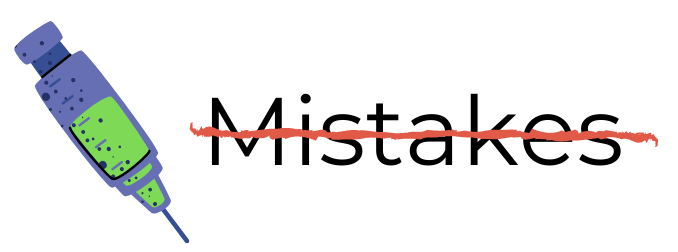Good morning! It has been 352 days since the first documented human case of COVID-19.
Today is Election Day in the US, which this year marks the end of the voting season rather than its major day. If you’re a US citizen and you haven’t yet, please vote.
For today’s newsletter I’d like to stay positive since the political news that is dominating various channels is quite negative without exception. So, we’ll discuss some good news in the headlines.
As usual, bolded terms are linked to the running newsletter glossary.
Keep the newsletter growing by sharing it! I love talking about science and explaining important concepts in human health, but I rely on all of you to grow the audience for this:
Now, let’s talk COVID.
Taiwan reaches 200 days without a locally-transmitted COVID-19 case
CNN, as well as other venues, have been highlighting the extreme success of many Asian governments in containing COVID-19 compared with the efforts of countries in the West. The CNN story on Taiwan was one I found particularly interesting: https://www.cnn.com/2020/10/29/asia/taiwan-covid-19-intl-hnk/index.html
What’s interesting to me about Taiwan is that it never entered a lockdown. The island nation instead focused on testing and contact tracing, two epidemiology mainstays that can be quite effective when used together.
Many Asian countries were able to take draconian measures that would have been wildly illegal in the liberal West, and I do think that Taiwanese contact tracing likely exceeded some boundaries that we might have in place in the US. However, no complete quarantine, like was enacted in Wuhan, was needed. No business closures—themselves a restriction of freedoms—were required.
That is not to say that I think Western lockdowns were necessarily a mistake; when a response fails, stronger responses are needed. Early Western responses to COVID-19 failed.
Taiwan’s early response did not fail, because of the focus on creating a testing infrastructure rapidly and ensuring that cases were identified and isolated quickly. This was aided by the fact that they are an island nation, but the principle of rapid identification and isolation of cases is one every country can learn from.
Also, learning from things is something Taiwan did. Taiwan was hit by the SARS-CoV-1 epidemic in the early 2000s. Their society adapted to that and developed plans for a new emergent virus outbreak. Those plans were put into motion when SARS-CoV-2 appeared, and helped to provide an accelerated response.
Yes, one could argue that luck had a lot to do with it, but I am reminded of a Louis Pasteur quote that was on one of the lab walls where I did my PhD: “Fortune favors the prepared mind.”
The Taiwanese response is a success story that perhaps we can learn from in preparing for future epidemics.
Understanding the immune-evasion mechanisms of SARS-CoV-2
Recently, some past collaborators of mine published a paper that will help us begin to understand the mechanisms that allow SARS-CoV-2 to obtain a foothold in the body and eventually cause disease.
In the past, I’ve written about how innate immunity represents an early, nonspecific bar that viruses must cross in order to establish infection. Innate immunity to viruses is mediated by Type I interferon, a molecule that acts as a master orchestrator of antiviral responses. When interferon is produced, it can activate hundreds of genes that respond to, and limit, virus infections.
As a result, many viruses wish to prevent interferon from doing what it does. This recent work, in the Proceedings of the National Academy of Sciences (PNAS), establishes that there is a protein in SARS-CoV-2, named ORF6, that can block interferon signaling and prevent that cascade of hundreds of antiviral genes from being activated. You can read it here: https://www.pnas.org/content/early/2020/10/22/2016650117
I’d like to note that it’s not unusual for a virus to do this. Almost every virus you have heard of has some way of deactivating the interferon response. It is expected that such a mechanism will be found. My own PhD was centered on the identification and description of an interferon-evasion mechanism in the virus family containing measles virus, which turned out to be shared amongst at least 4 viruses in the family. So, we are not so much reporting on an unusual feature of SARS-CoV-2 as much as understanding how it solves a problem that most viruses must be able to solve.
How can this be used? Well, it could have a few applications. It’s possible it could be used in the development of antivirals that prevent ORF6 from functioning, but where I think it’s even more likely to be applicable is in vaccine design. If mutants of SARS-CoV-2 could be created which are deficient in interferon-evading functions like the one described for ORF6, those mutants could become good candidates as potential vaccine strains. They might be so weakened that they would not cause disease, but could still cause a natural infection that would lead to a functional and effective immune response.
Since the beginning of the pandemic I have been hoping for papers like this to begin to appear. So far, the work that has been published has focused on understanding COVID-19 the disease; this is important but it does not necessarily help us to understand what causes the disease. This work helps us begins to understanding the mechanisms that make the virus cause the disease, and is part of a recent trend of papers like this. That trend is an important step forward.
What am I doing to cope with the pandemic? This:
Not thinking about the election
OK, I’m lying. The election is most of what I have been thinking about. However, I would like to encourage you to learn from my bad example and do the opposite. Things are going to be chaotic in the coming days as vote totals are calculated. It may be unclear who has won, bold and frightening statements may be made; I just don’t know. What I do know is that catastrophizing about it will do very little good for anyone.
If only tomorrow, please try to take some time out for yourselves and think about anything else. The news will not change simply because you did not look at it, but your wellbeing might.
Join the conversation, and what you say will impact what I talk about in the next issue.
Also, let me know any other thoughts you might have about the newsletter. I’d like to make sure you’re getting what you want out of this.
This newsletter will contain mistakes. When you find them, tell me about them so that I can fix them. I would rather this newsletter be correct than protect my ego.
Though I can’t correct the emailed version after it has been sent, I do update the online post of the newsletter every time a mistake is brought to my attention.
No corrections since last issue.
Thanks for reading, everyone! Enjoy your week!
See you all next time.
Always,
JS







Couldn’t agree more about the election. If you want something completely distracting and different, highly recommend the documentary My Octopus Teacher on Netflix.
Great mental health advice in the "Pandemic Life" section!